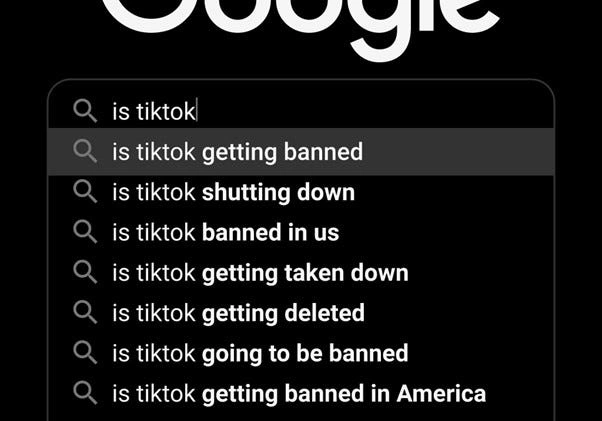Life After TikTok: Where Millennials and Gen Z Will Create, Con…
Like this project
Posted Apr 8, 2025
It's decision time for TikTok, with ByteDance planning to shut its app for U.S. consumers this Sunday, Jan 19th.
Likes
0
Views
7

Gen Z native Melany Andrik delves into TikTok's meteoric rise and influence. Amid the looming U.S. ban and its possible expansion into the UK, Europe, and Australasia, she explores where Gen Z's attention may shift next.
TikTok is more than just a social media platform for Millennials and Gen Z. It’s where trends are born, creativity thrives, and communities connect. With the imminent ban or sale of TikTok’s U.S. operations gaining momentum, many of my generation, myself included, are wondering: What’s next? This article explores how we’ll adapt in a world without TikTok by focusing on three key areas: creating, consuming, and connecting.
What Makes TikTok So Unique?
From my generation’s perspective, TikTok stands out because it’s more than just a platform—it’s an experience. Unlike other social media apps, TikTok offers an algorithm that seems to understand us on a deeply personal level, delivering content that feels tailor-made. Whether it’s a 15-second skit, a viral dance, or an educational video, the content is quick, engaging, and endlessly varied.
What sets TikTok apart is its accessibility. Anyone can create and share videos without needing expensive equipment or a large following. It democratises creativity in a way that few platforms have. It also fosters a sense of authenticity; creators don’t have to present a polished, filtered version of themselves. This rawness resonates deeply with Millennials and Gen Z, who value realness in an increasingly curated digital world. TikTok isn’t just another app—it’s a digital stage where anyone can shine.
What Will Millennials and Gen Z Do After TikTok?
For Millennials and Gen Z, TikTok has become part of daily life. If it disappears, we’ll need to adjust. Some will seek alternatives for entertainment, some for creating, and others for building communities. The good news? Our generation is resilient and tech-savvy. We’ve adapted to shifting digital landscapes before, and we can do it again.
But what’s driving these changes, and why does it feel like TikTok is uniquely targeted? Let’s dive into why the U.S. government is focusing on TikTok and what it means for us.
Why Is TikTok Being Targeted?
The U.S. government has raised national security concerns about TikTok, claiming its parent company, ByteDance, could share user data with the Chinese government. TikTok’s rapid growth has also made it a significant competitor to U.S.-based platforms like Instagram and YouTube, raising economic questions. Meanwhile, China is considering selling TikTok’s U.S. operations to address these issues, with Elon Musk emerging as a potential buyer. This could ensure the platform survives while addressing privacy concerns.
For users like us, this scenario raises two questions: Could a sale protect TikTok’s unique culture? And will it keep the app’s core features intact? These uncertainties make it even more important to explore our options.
What Happens After TikTok?
Even if TikTok disappears, the habits and communities it fostered won’t vanish. Millennials and Gen Z will adapt by finding new ways to create, consume, and connect. Here’s how:
Where We’ll Go to Create
One of TikTok’s biggest draws is how it democratises creativity. Anyone can go viral overnight. If the platform goes, creators will pivot to platforms like Instagram Reels, YouTube Shorts, or even emerging apps like Lemon8. The challenge? These platforms may lack TikTok’s raw, unfiltered appeal. For creators in my age group, the focus will be on finding new spaces that offer similar creative opportunities.
Where We’ll Go to Consume
TikTok is where we go to be entertained and inspired. It’s the go-to app for viral challenges, bite-sized tutorials, and relatable humor. Without it, many of us will turn to Instagram or YouTube for short-form content. But platforms like Reddit and Discord could also gain popularity for niche interests, offering a more community-focused experience.
Where We’ll Go to Connect
From #BookTok to #PlantTok, TikTok’s communities bring people together over shared interests. If TikTok is banned, other platforms like Discord, Reddit, or even Facebook Groups might take on a larger role. These platforms are great for niche communities, but they may not offer the same spontaneity as TikTok’s algorithm, which often introduces us to things we didn’t even know we needed.
How China’s Sale of TikTok Could Change Everything
China’s decision to consider selling TikTok’s U.S. operations is a game-changer. A new owner could address data privacy concerns while preserving the platform’s features. If Elon Musk or another high-profile buyer steps in, it could redefine the app’s future. This sale could also set a precedent for how governments handle tech companies with global reach.
What Publishers Should Do Next
As someone who has grown up navigating the rise and fall of digital platforms, here’s what I’d recommend to publishers if TikTok is banned. First, diversify your presence across platforms like Instagram Reels, YouTube Shorts, and even Snapchat Spotlight. These alternatives offer similar short-form video features and have growing audiences.
Second, consider investing in long-form content like blogs, podcasts, or newsletters. While TikTok’s short videos are powerful, long-form content builds deeper connections. Finally, experiment with emerging platforms. Apps like Clapper or Lemon8 might not yet match TikTok’s scale, but they could offer opportunities for early adoption and growth.
In my experience, the key is to stay flexible. The digital world is always evolving, and publishers who adapt quickly will thrive, even in a post-TikTok era.
Final Thoughts: Life After TikTok
If TikTok is banned or sold, it won’t mean the end of creativity, connection, or entertainment for Millennials and Gen Z. We’ve adapted before, and we’ll do it again. Whether it’s through established platforms like Instagram and YouTube or emerging ones, we’ll find ways to create, consume, and connect. And while TikTok’s future may be uncertain, its impact on digital culture will last for years to come.
Melany Andrik
Melany Andrik is a 26-year-old content creator with a passion for writing and a deep interest in digital marketing and social media. With a strong passion for writing and research, I enjoy bringing fresh, engaging perspectives to topics that inspire me. My LinkedIn Profile.




